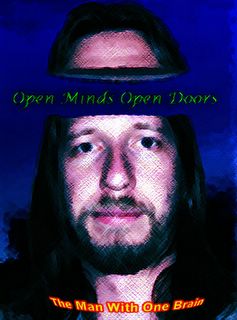Latest installment in BoBo's World
David Brooks today wrote this piece:
Funny That. I seem to remember Bush reminding people that "we are still at war." I guess Brooks failed to get that memo. I am sure that all our troops over in Iraq will be glad to know, that according to Brooks, they are no longer being shot at and everyone is at peace there. I guess since peace and love has broken out all over Iraq, that Bush will now no longer need to request that additional $80 Billion dollars from Congress that he just recently warned them about to fund the Iraqi non-war.
The Bush administration has started its second act, and it is striking how different this one feels. When you ask senior officials to remember the first term, they remember it as a time of war. There was the attack of Sept. 11. There were invasions of Afghanistan and Iraq. There was the political war of the 2004 campaign.That was a time when pieces of things were cast asunder. Senior Bush officials talk about this term as a time when pieces of things will be put back together. There's almost a springlike, postwar mood.
Brooks continues on fanticizing about his non-reality-based world:
The new mood has also brought a resurgence of soft-power thinking. Administration officials are trying to think big about what institutions can be used to implement the freedom agenda the president sketched out in his Inaugural
Address.
When you ask exactly which institutions need to be created, they get more than a little vague, but you get a clear sense of their preferences. Bush folks have not developed any new love for the Security Council. Instead, they are much more interested in working with regional groups, like the Organization of American States.
Whatever happened to the good old days when conservatives desired "smaller government" and fiscal responsibility? Today, they seem to want a huge world government (controlled by the U.S. of course), and the largest deficits imaginable, so that "freedom" can be spread to every nook and cranny of the world. All this, mind you, when people like Brooks, and the President want to phase out Social Security for Americans, ensuring that our eldery return to the days of "eating catfood."
Brooks also pens this gem:
The foreign policy of the Bush officials is beginning to sound more like compassionate conservatism all the time. To win the war of ideology against radical Islam, they want to put much more emphasis on global trade. This strikes me as unpromising; if trade could loosen up radical regimes, Saudi Arabia would be Switzerland. But they really mean it.
Shorter Brooks: "Even I can't swallow the hyper-unrealistic policies of Bush, but if he says it, it must come true..."
And what is this nonsense about Bush and "soft talk?" Soft compared to what? Bush saying he wanted bin Laden "dead or alive..."
Has anyone out there wondered if Rummie has sold his now unused autopen to David Brooks....


